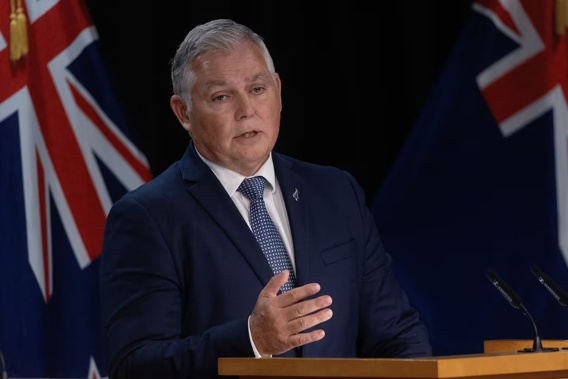
Thousands fewer family harm investigations are being conducted by police, who warned the Minister in March stepping back could have life-threatening outcomes.
Official data show police investigated nearly 3000 fewer cases of family harm last month than they did in December 2023.
In a March briefing, police advised Minister Mark Mitchell there was a risk increasing the threshold for attendance at family harm events, and using a triage system to determine the response, could result “in a poor safety outcome or even a threat to life.”
But police said the proportion of time spent attending family harm had nearly doubled in the ten years to 2023, and more than half of investigations do not involve a family violence offence being recorded.
They stated the current policy of mandatory attendance at every event was “unsustainable” and would be removed, “regardless of the readiness of partner agencies.”
Police Minister Mark Mitchell said the withdrawal was phased, and has been carefully considered by police - as the Government works to boost frontline police resources.
He said police have outlined a timeline for withdrawing from family harm, so agencies have time to stand up their own responses - citing the example of mental health responders in emergency rooms.
Minister for the Prevention of Family Violence and Sexual Violence Karen Chhour said police will always have a role to play when it comes to responding to violence, and this has not changed.
“I want to make it clear to the people that they should always feel that they can call police, and to suggest that police will not respond risks undermining this.”
But Labour’s police spokesperson Ginny Andersen said the withdrawal is already reflected in the numbers, with answers to written questions showing a decline in family harm investigations from 16,361 in December 2023, to 13,618 last month.
Andersen said the decline is not good news.
“Always in the past we’ve seen an increase in family violence reporting and investigations, and that’s a good thing - we want to encourage people to report family violence.
“Only around 20 per cent of family violence is currently reported, so we want to really encourage people to do that. It’s a real concern if police aren’t attending these callouts, and deeming them non-serious, because that stops us increasing the reporting rate.”
She said in many areas of the country, if police aren’t sent to an incident, there may not be a response at all.
“If we’re serious about getting on top of family violence as a country, then we need to be making sure, if police are stepping back -- who is doing this job? And right now, no one is going to be doing that job.”
Chhour said she is always concerned about family harm incidents going unreported - but argues the comparison is not overly valuable unless it compares the same month, year on year.
She said she expects people to get the right response for their needs, and that agencies would work collectively on matters regarding family violence and sexual violence.
Asked in the House why she had not placed a Budget bid for the prevention of family and sexual violence, Chhour said almost a billion dollars had been invested between 2018 and 2023 - which had stabilised and enhanced frontline services.
“Before seeking further investment I want to make sure that funding is delivering as much as it can in the right place and we know what’s effective.”
The briefing to Mitchell in March, released under the Official Information Act, stated New Zealand has one of the highest rates of domestic violence in the OECD, police received an average of 22 reports of family harm per hour, and attended 19 of them.
It said police would always have a role as first responders to high harm incidents and criminal offending, but right-sizing their response meant “stepping back from events that fall below this harm threshold”.
It informed the Minister “police’s existing policy of mandatory attendance at every family harm event (regardless of whether violence or criminal offending is present) is unsustainable and is being removed.”
Police identified “opportunity to explore a triage model ... through allocating some employees within the Government’s investment in 500 additional police officers to this function.”
Mitchell said police responded to 1.25 million events last year, and cannot treat each one with the same priority.
He said police dispatchers are trained to assess where the risk warrants Police attendance, and the family harm code being used by police is very broad.
“It includes verbal confrontations between family members. It can be as minor as a mother and daughter fighting over an iPhone charger.”
Take your Radio, Podcasts and Music with you









